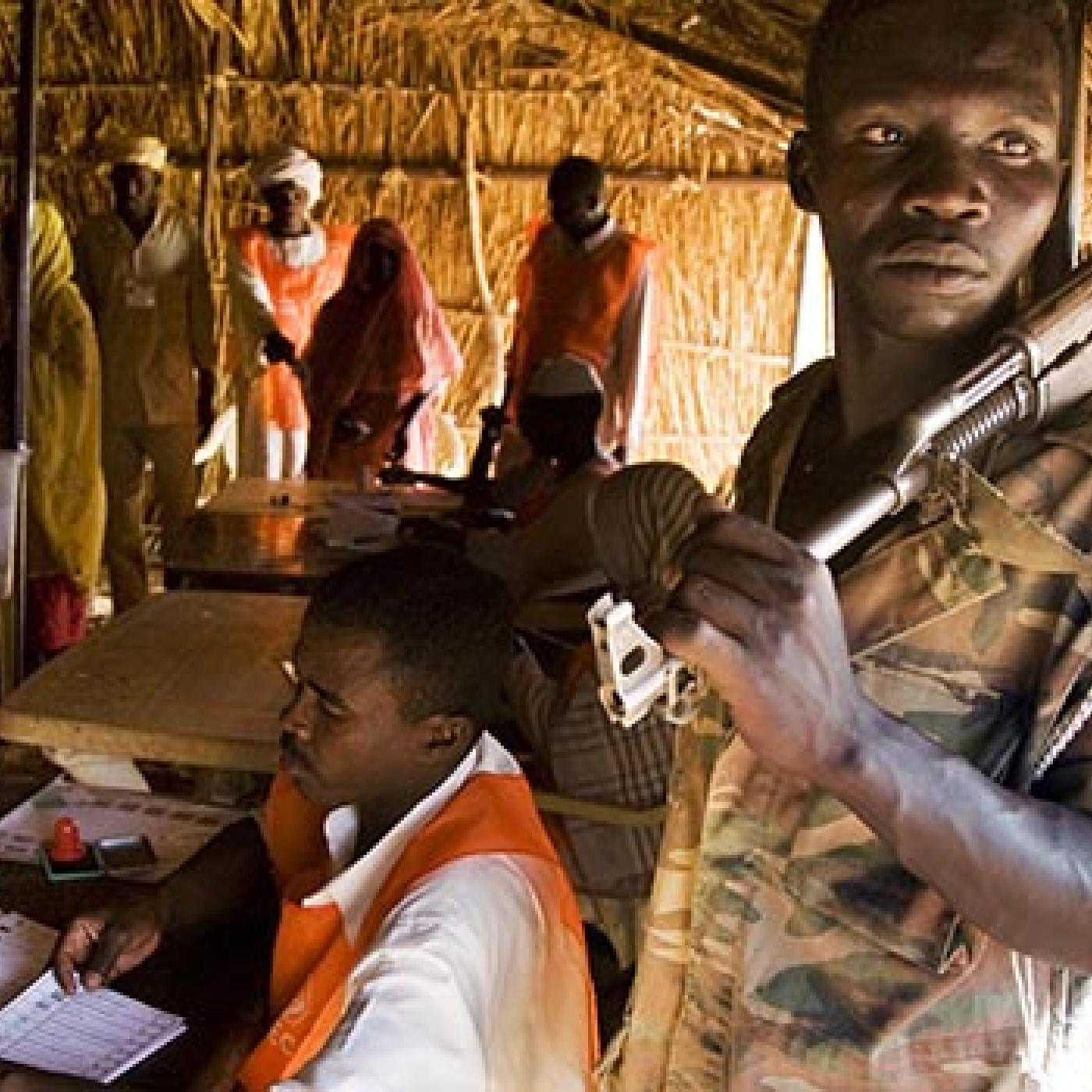Tools & Resources
Filter by
Type
Publication date
Language
Type
Publication date
Language
Publication
Report/Paper
Overcoming Challenges to Democracy and Governance Programs in Post-Conflict Countries: CEPPS Lessons Learned
How can democracy and governance programs be more effective in post-conflict environments?
May 18, 2021
News & Updates
Feature
Manatt Fellow Presents on Election Dispute Resolution in Africa
In September 2019, IFES Manatt Fellow Tinashe Hofisi presented on presidential election petitions in Kenya, Sierra Leone, Uganda, Zambia and Zimbabwe at the 14th Annual Symposium of the Electoral Institute for Sustainable Democracy in Africa. He highlighted the unique jurisdictional tools available to apex courts in adjudication of presidential elections and their effect on judicial outcomes.
News & Updates
Feature
Manatt Fellow Presents on Presidential Election Petitions in Africa
From October 30-November 1, 2019, IFES participated in the Fourth African Judicial Dialogue in Uganda. IFES Manatt Fellow Tinashe Hofisi presented his paper on presidential election petitions in Kenya, Sierra Leone, Uganda, Zambia and Zimbabwe.
News & Updates
Feature
Ending Impunity for Violence Against Women in Elections in Zimbabwe
Earlier this year, IFES research in Zimbabwe found that women engaging in elections as candidates, voters and journalists were experiencing devastating sexual extortion, physical violence, harassment and intimidation from their bosses, colleagues, religious leaders and domestic partners, both in physical and online forms. In response, IFES and local Zimbabwean partners launched an initiative to end impunity for violence against women in elections.
Publication
Report/Paper
New Assessment of Violence Against Women in Elections in Zimbabwe
Zimbabwe is scheduled to hold general elections on July 30, which may be the foundation for a new political era. Violence Against Women in Elections in Zimbabwe: An IFES Assessment demonstrates that deep-seated inequality and targeted violence against women in elections inhibit Zimbabwean women from taking full and equal part in this transformative moment. Setbacks at this critical juncture could echo for years or generations, entrenching political gender inequality in the “new Zimbabwe.”
July 24, 2018
Election FAQ
Elections in Zimbabwe: 2018 General Elections
On July 30, Zimbabwean citizens went to the polls for general elections. Former President Robert Mugabe resigned in November 2017 after 37 years in office, and this major political transition raised the stakes for the elections and created an opportunity for increased competitiveness in elections. To help you understand this important electoral process, IFES provides Frequently Asked Questions (FAQs) on Elections in Zimbabwe: 2018 General Elections.
News & Updates
Feature
IFES Signs Global Disability Summit Charter for Change
On July 24, the United Kingdom Department for International Development, the International Disability Alliance and the Government of Kenya will host the first-ever Global Disability Summit. IFES, represented by IFES President Bill Sweeney, will participate and has signed the Charter for Change, the summit’s principal legacy document outlining actions that must be taken to ensure the rights, freedoms, dignity and inclusion for all persons with disabilities.
News & Updates
Feature
Zimbabwean Civil Society Organizations Promote Credible, Inclusive Elections
Zimbabwe will hold its much-anticipated harmonized elections on July 30, when citizens will vote for president, 201 constituency seats in the National Assembly, and seats in the urban and rural local authorities. IFES has been working to strengthen the capacity of Zimbabwean civil society organizations and community-based organizations to promote credible, inclusive and transparent elections.
Publication
Report/Paper
Regional Director on “The Elections We Want” in Africa
As part of its annual report, the Wilson Center Africa Program asked IFES Regional Director for Africa Rushdi Nackerdien to contribute an essay on recent African elections. His piece, “The Elections We Want,” covered 2017 elections in Angola, Rwanda, Liberia, Senegal, the Gambia, and Kenya, and their implications for election practitioners moving forward.
January 31, 2018
Election FAQ
Elections in Iran: 2017 Presidential and Municipal Elections
On May 19, Iranians will go to the polls to elect their next president and members of city and village councils. If no candidate receives a majority (50% plus one) in the presidential election, the top two candidates will compete in a runoff election.










